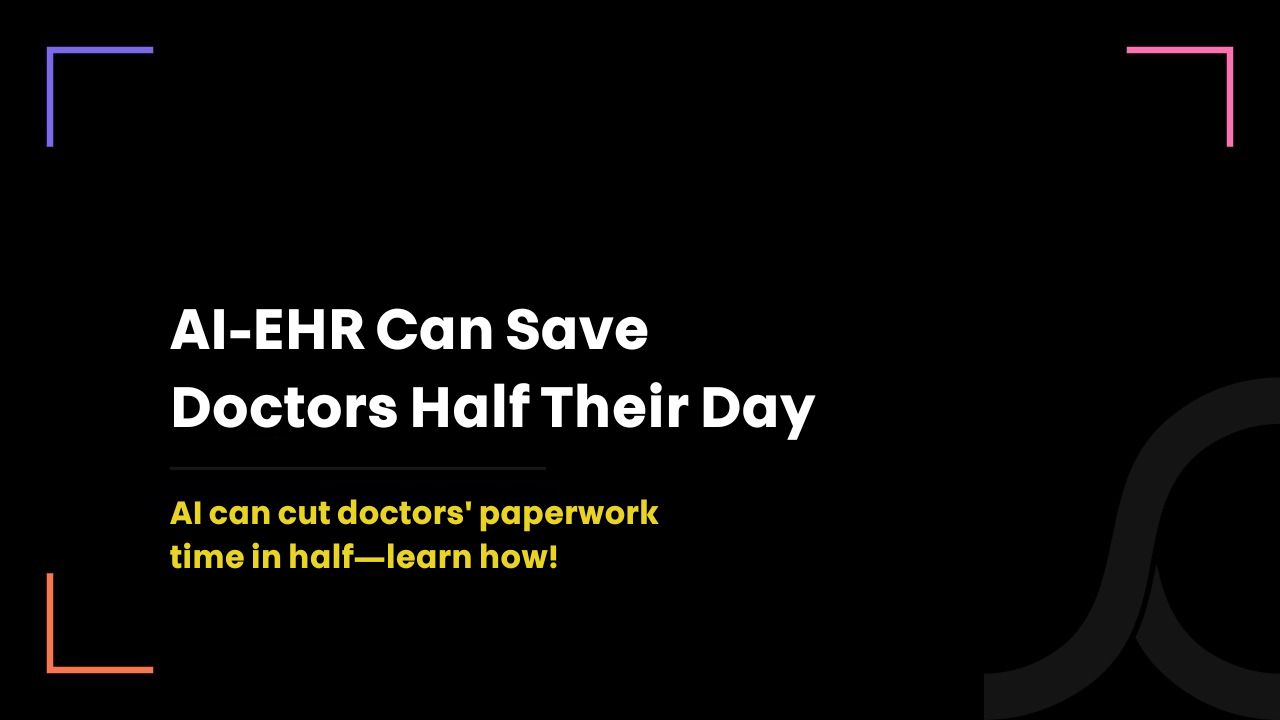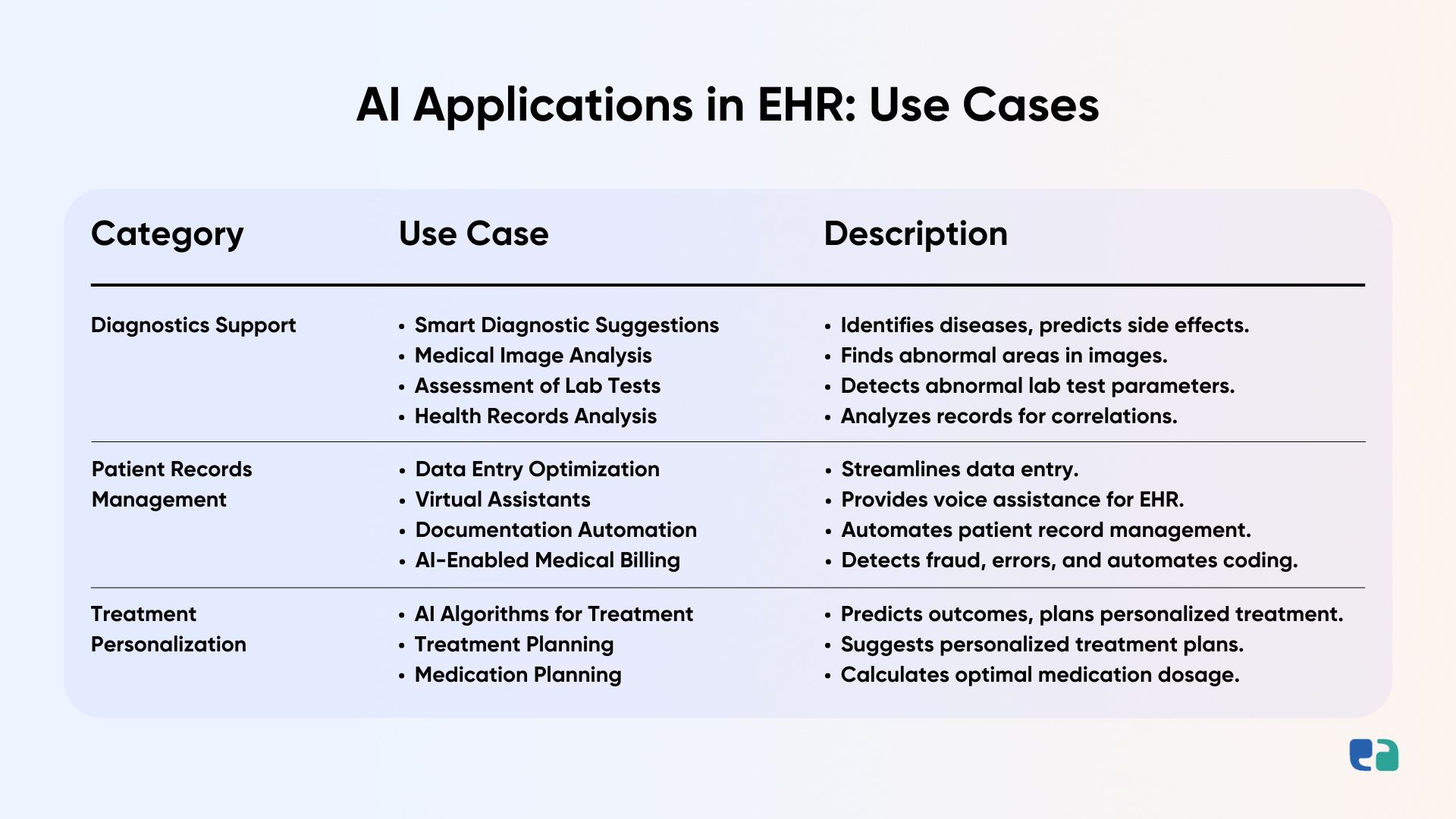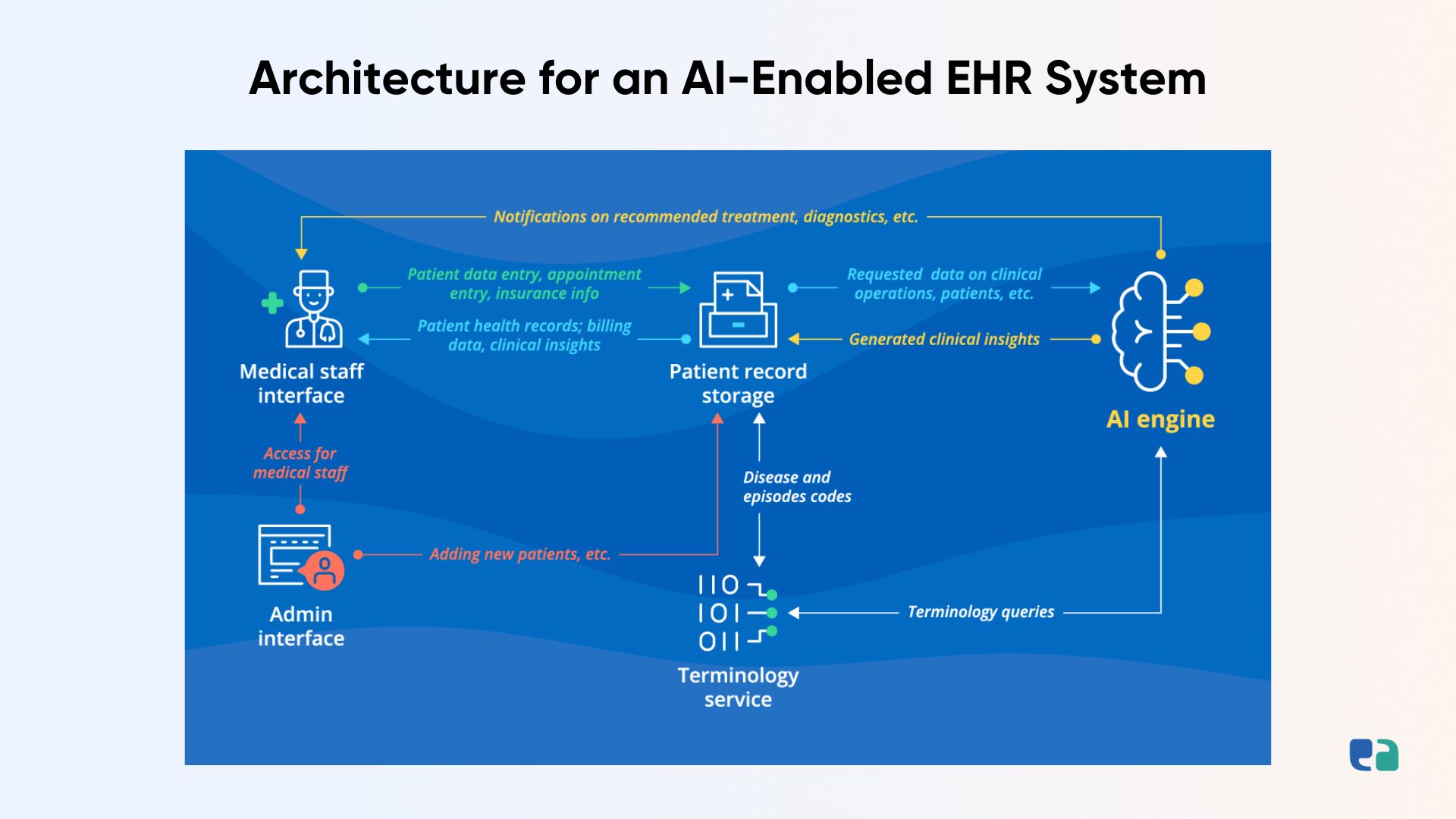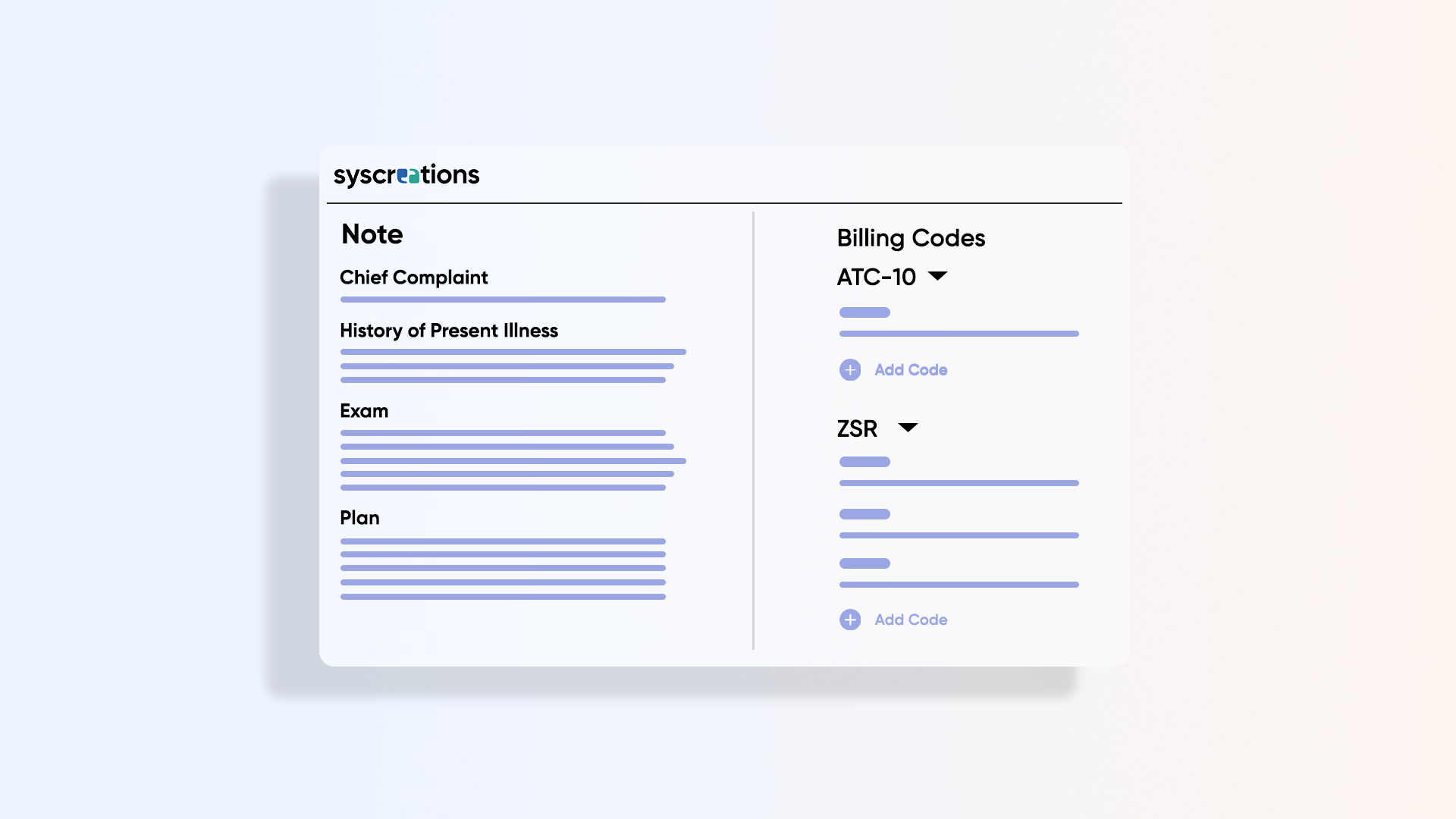AI-Powered EHR: Top Vendors, Key Features, and How to Build Your Own

10 months ago
In 2023, the healthcare AI market was worth $22.45 billion.
By 2030, it’s expected to reach $208.2 billion.
Why such fast growth?
The need to fix complicated EHR (Electronic Health Record) systems and make sense of all the patient data is a big reason.
Generative AI, like ChatGPT, is also pushing this forward. Many EHR systems are now using AI to automate things like billing, scheduling, and paperwork.
A 2019 study found that EHRs are behind 40% of doctor burnout.
The demand for AI in healthcare is growing because it can solve this problem.
AI-powered EHRs can take care of the time-consuming tasks that eat up almost half of a doctor’s day.
This frees up doctors to spend more time on patient care and reduces burnout.
How AI Improves EHR for Doctors
AI makes managing patient records faster by using tools like speech recognition and smart suggestions for data entry.
It also takes over many routine administrative tasks, like scheduling appointments and writing clinical notes, so doctors and nurses have more time for patient care.
With AI, patient care improves too—records are more organized, and treatment planning becomes smarter and more consistent.
Plus, AI-powered systems can even provide diagnostic assistance with impressive accuracy, reaching up to 98.7%.
Top 4 EHR Vendors Using AI to Help Doctors
1. Epic
Epic is using generative AI to automate repetitive tasks, like replying to patient messages.
Instead of writing every response from scratch, doctors can review a draft AI creates and send it quickly.
Epic is also testing AI tools that can summarize new patient information, saving doctors from hunting through records.
In the future, Epic plans to use AI to explain test results to patients in simpler language and translate them into other languages, making healthcare more accessible.
2. Oracle Health
Oracle Health has launched its Clinical Digital Assistant for ambulatory clinics in the US.
This mobile tool uses AI, clinical intelligence, and voice assistance to help doctors focus more on their patients.
Integrated with Oracle Health's EHR, it simplifies clinical tasks like note-taking and follow-up suggestions.
With AI handling much of the paperwork, doctors can give more attention to patient care and spend less time on administrative work.
3. eClinicalWorks
eClinicalWorks teamed up with sunoh.ai to use AI for clinical documentation.
Their AI listens to conversations between doctors and patients, then creates a draft of the medical notes.
Doctors just need to review and approve it.
This saves a lot of time because they don’t need to type everything.
It also suggests important next steps, like lab tests or referrals, based on what the doctor and patient talked about.
4. MEDITECH
MEDITECH has been working with Google to use AI for hospital discharge summaries since 2021.
Writing these summaries can take time, especially for long hospital stays.
AI can create a draft for doctors, pulling in all the important information. The doctor just needs to review and make edits.
This tool is being tested, but the goal is to make discharge faster and easier, helping reduce doctor burnout.

Top 8 Advanced Features for AI-powered EHR System
No two custom EHR systems are the same, but we’ve put together a list of key AI features that can be tailored to fit your specific needs:
1. Natural Language Processing (NLP): Doctors can simply dictate notes, and AI will convert the speech into clinical records, reducing time spent on data entry.
2. Clinical Data Extraction: AI scans and pulls data from unstructured text like clinical notes or printed records, adding it to the relevant databases and linking it to important codes like ICD-10 or SNOMED CT.
3. Text-to-Speech: An AI assistant reads out patient records, saving doctors time in searching for data and helping double-check prescriptions and notes to avoid errors.
4. AI Suggestions: AI can offer auto-complete suggestions for clinical terms, autofill patient details, and display recent medical histories like lab tests or allergies to boost efficiency.
5. Diagnostic Assistance: AI helps interpret lab results and medical images, offering potential diagnoses and flagging high-risk conditions like heart failure or diabetic coma.
6. Decision Support: AI personalized care by suggesting alternative treatments, calculating medication dosages, and recommending additional tests based on patient risks.
7. Telemedicine Planning: In EHRs with telemedicine, AI helps schedule follow-ups and sends reminders to patients for upcoming appointments.
8. Billing: AI simplifies billing by extracting key data, generating reports, and handling insurance verification and eligibility checks.

Case Study: Transforming EHR Management with Advanced AI Integration
Client Challenge
Our client aimed to transform EHR management by reducing the administrative burden on doctors. The goal was to automate key tasks to enhance efficiency and allow providers to focus more on patient care.
Solution Overview
We developed an AI-native EHR system that automates patient intake, medical scribing, inventory management, and billing. Using advanced AI, our solution captures doctor-patient interactions, converts them into accurate clinical notes, and handles insurance claims seamlessly.

How It Works
The system employs natural language processing (NLP) to transcribe and process clinical notes. It also manages inventory levels, automates reordering, and sends reminders for follow-ups. This automation reduces manual errors and improves operational efficiency.
Impact and Results
The implementation of our AI-powered EHR system brought significant improvements to our client:
- Increased Efficiency: Administrative tasks were reduced by 25-30%, freeing up valuable time for healthcare providers to focus on patient care.
- Revenue Boost: Our client’s first customer experienced a substantial financial gain, earning an additional $100,000 per month due to the automation of billing processes.
- Operational Excellence: By automating routine tasks, our client’s EHR system minimized manual errors and delays, enhancing both operational efficiency and patient satisfaction.
How Much Does a Custom AI EHR Cost?
The cost of developing a custom AI EHR system varies depending on several factors:
- Scope and complexity of AI features
- Required accuracy of machine learning algorithms
- Data quality, sources, and storage volume
- Number and complexity of integrations (e.g., with patient portals)
- Security, user interface (UI), and user experience (UX) requirements
- Compliance costs (e.g., FDA registration for SaMD functionality)
- Costs for cloud services, infrastructure, maintenance, and support

